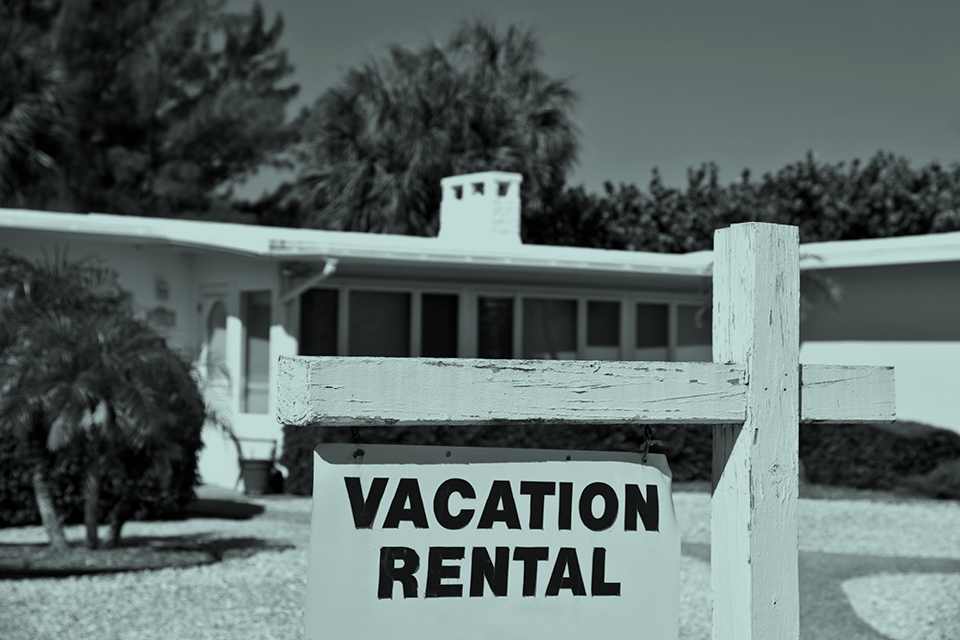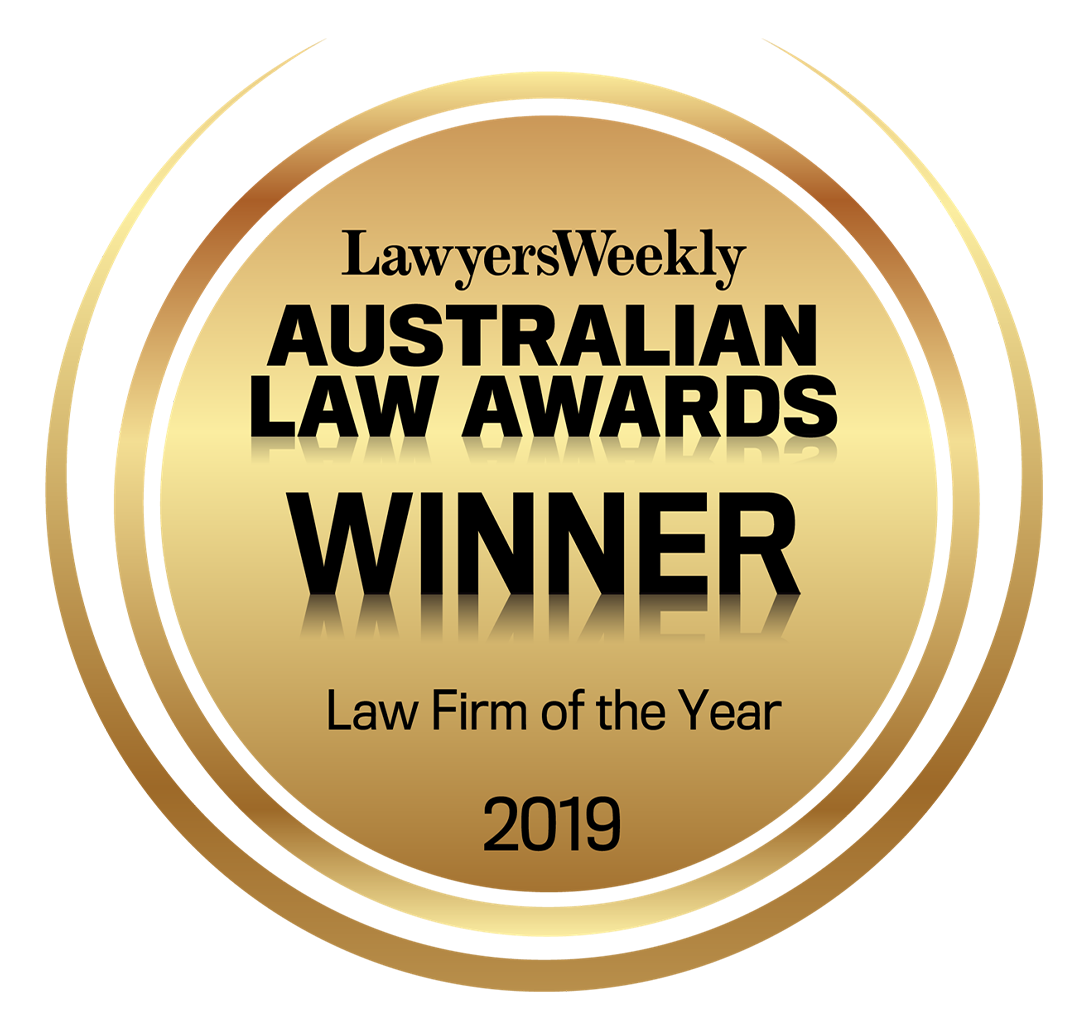
It’s quite common to hear about people pursuing a compensation claim due to being injured on our roads or at work or in a shopping centre. But what about an injury in a rental property?
Over the Christmas break, I was able to enjoy a little quality time with my young family after a busy year at Polaris.
Using one of the big holiday accommodation websites, a few months earlier I’d booked a very standard holiday house and although it was nothing too flashy, I was sure to check that it had everything we needed; enough bedrooms, a BBQ, a bit of outdoor seating and somewhere quiet for our 18 month old twin boys to nap.
As we entered the house, I realised I’d forgotten to check one thing. Was it safe?
Was our holiday rental safe?
As I opened the front door, I saw a spiral staircase; not the grand ones from old films but what appeared to be a plastic set of stairs that the owner had put together himself about 30 years before our arrival. And all that stood in between it and our very curious and active kids was a child-proof gate which was no longer child-proof.
Despite being on holiday, the personal injury lawyer in me asked “What would happen if one of us fell down those dodgy stairs?”
I immediately recalled all of the cases where I’d represented people injured in rental homes. All those who had hurt themselves on:
- dodgy staircases;
- shattered glass windows;
- slippery wall tiles applied to flooring;
- poorly placed spas and pools; and
- collapsing balconies.
Do you check property safety before booking your holiday accommodation?
Online accommodation booking websites have exploded in popularity over the last decade and millions of people are renting out rooms and entire homes using those sights. When renting holiday accommodation, whether through Stayz, Airbnb or any of those big sights, we usually check the reviews and ratings, the perks and the cost. But the vast majority of us assume that the house and the things in it will be safe and that the owner will have checked that we aren’t at risk of injury.
And for hosts and rental property owners, how many have considered what happens if someone is injured during their stay?
What does the law say about your rights and protections if injured in rental accommodation?
Claims for injury against landlords in Victoria are based on Section 14B(3) of the Wrongs Act which sets out the duty owed by occupiers to visitors.
In essence, a landlord owes a duty to people on the premises to take reasonable care to see that they will not be injured because of the state of the premises or things done to it (for example, renovations and modifications).
The Wrongs Act also gives a number of helpful things to consider when thinking about the risk of a person being injured, including:
- The seriousness and likelihood of the probable injury;
- The circumstances of the entry onto the premises;
- The nature of the premises;
- The knowledge which the occupier has or ought to have of the likelihood of persons or property being on the premises;
- The age of the person entering the premises;
- The ability of the person entering the premises to appreciate the danger;
- Whether the person entering the premises is intoxicated by alcohol or drugs;
- Whether the person entering the premises is engaged in illegal activity;
g. The burden on the occupier of eliminating the danger against the risk of the danger to the person.
It is important to understand though, that the duty of the landlord to the tenant (that’s you the renter), is to keep the premises in reasonable repair, but does not mean that the premises have to be safe as possible.
So, where does that leave us?
Whether a visitor will be successful in a claim for an injury that occurs on another person’s property will depend heavily on the circumstances.
3 legal tips for renters
- Check the terms of the website you are booking through together with the terms and notes of the hosts, with respect to their insurance coverage.
- Remember that you are still responsible for your own safety. If you notice a hazard, notify the landlord. Ask them about the condition of the hazard and take care to avoid the area if possible.
- Do a photo or video walk through of the house on arrival. This is also very helpful even if you aren’t injured but rather, you have a dispute over your bond and the condition of the property.
If you are injured:
- seek medical attention;
- take as many photographs of the site of the accident as you can; and
- report the incident as soon as possible to the property owner or manager and ask them to provide the details of their insurer.
3 legal tips for rental property owners and hosts
- Carefully check your insurance in the event of an accident or injury to a guest. You may be insured by the booking website you subscribe to, any agent you use and/or via landlord’s or homeowner’s insurance. Take care to check the terms of the insurance, including:
- your responsibilities under the insurance;
- whether your insurance kicks in where you are letting the property, remembering that hosting on Airbnb could mean that you are considered a “business” and could affect your home and contents or landlord’s insurance cover; and
- the limit of any cover. Providers like Airbnb often carry insurance of up to US$1million. Remember that in a personal injury claim, limits of cover can be used up very quickly and you could be out of pocket.
- Remember that the best way to avoid a personal injury claim is to avoid someone being injured on your property. Walk around your property as if it’s your first time and look for things which may be hidden traps or which may come as a surprise to people who aren’t familiar with the home. If the back porch light is broken, get it fixed before you begin booking in guests. Awareness of a defect and taking an opportunity to fix it are important legal considerations.
- Communicate with your guests. Ensure that they know of anything that might affect their safety during their stay. Ask them if they have any special access needs or questions that might help them feel safer during their stay.
Ultimately, if as a guest you are injured in a holiday rental or residential property rental, it is possible you will be eligible to make a claim for compensation. Use our tips above to protect your rights and entitlements should you be injured.
1300 383 825 or email [email protected]






